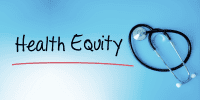The foremost Secret to nurturing yourself is to practice caring for yourself. This article focuses on self-nurturing techniques for the body and mind. The more you practice these secrets the more you’ll be able to elicit calm and relaxation in your body. Here are some tried and true “secrets” for physical self-nurturing.
- Breathe deeply. Deep breathing is a wonderful skill as it can be used anywhere and at anytime: while in a patient’s room; before, during, or after report; in the cafeteria line; in the restroom; or even while driving in your car to and from work.Here’s how you do it. Breathe in a deep inspiration (push out your belly) and say, “I am…..” to yourself. Next let the breath out slowly and say, “calm.” Repeat 5 to 10 times. Feel your body start to soften, your jaw unclench, your facial muscles relax, your shoulders loosen up and the rest of your body unwind.
- Do a physical activity with the goal of releasing muscle tension. Here is a sitting activity you can do at the nurses’ station. Sit in your chair and stretch out your legs in front of you. Flex your feet a few times, and then make circles with your ankles. Next stretch your arms out to your sides and make ten forward circles then reverse. Stretch your arms over your head. Reach up to the sky. Lower your arms. Repeat five times and relax.If sitting isn’t for you, walk. During your shift take a mini-break and walk up and down one or two flights of stairs or quickly walk the length of your unit two or three times. Get physically active and dust the report room, wipe down an IV pump, or clean and stock your medicine cart. Don’t worry about what your team members will say. You are caring for yourself, you’ll feel better and be ready for the next medication administration, dressing change, or chart entry.
- “Shake off” stress and negative energy. Go to the bathroom and wiggle and jiggle and shake your body. First shake your hands, and then your arms up to your shoulders to the count of 10. Next, brace yourself against a wall or a chair and shake one foot and leg then the other foot and leg. Now stand upright and gently shake your whole body—head, torso, hips, and so on. Or you can dance; think the hula, the twist, or even the bunny hop. These movements shake off the negative energy and gets positive energy flowing. This is especially helpful after working with a particularly challenging person. You need to let the negative energy go. Literally, shake it off your body.
- Place a favorite photograph of your child, spouse, cat, or dog in the back of your ID badge holder. Take a moment to turn over your badge and gaze at your photo as often as you like while at work. This simple act will make you smile and relax.
- HALT! Do not let yourself get too Hungry, Angry, Lonely or Tired. Take three minutes or so to pay attention to these four areas. If you are hungry, take your break, even if only for 10 minutes, and eat a protein bar. If you are angry, stop, deep breathe 10 times or slowly count to 10 before responding. If you are lonely, you probably need some emotional support. Share the stress of the moment or day. Ask a coworker to lunch or to break. When you feel tired, sit down and rest for 5 to 10 minutes. Not taking time for yourself can lead to irritability, resentments, poor judgment, and mistakes.
- Take a moment and stop all activity. Pause, take a deep breath, and focus on the very next thing to do. Do this for a minute or two. This is what I call a “recharge and refocus moment.” This little secret step allows you to focus and be fully present for your next patient.
Now, here are top secrets on self-nurturing for your mind and spirit.
- Apply the three “R’s”: Refocus, Reframe, and choose to Respond differently. For example, instead of being exasperated at a stoplight, refocus and reframe it. Take a deep breath, smile and say “AHHHHHHH…a moment to relax!”
To use the three “R’s,” pause (refocus), think positive thoughts (reframe), and choose to respond in a constructive, confident manner. The key word is choose.
Here is an example of how to use the three “R’s” to prevent someone else’s negative mood from infringing on your day. Let’s say the night nurse yelled at you during report. You could choose to respond by yelling back at her, “Get off my case.” Or you can decide to pause and deep breathe, think “Wow, she must have had a bad night. I don’t have to yell back”, then choose a different but appropriate response, “It sounds like you had a bad night.” and then say it. You will likely find the night nurse becomes aware of her behavior and apologizes to you. Be a refocuser, reframer, and a “choosey” responder. - Use daily affirmations. Affirmations are positive statements you make about yourself. For example, “I am a competent and capable nurse;” “I am a safe and effective nurse.” Positive affirmations are powerful tools that affirm your thoughts and beliefs about yourself. (Hay, 2004) Say them to yourself, say outloud, or write them out 10 times, 20 times, 50 times! This may take some practice but by verbalizing or writing down positive affirmations on a daily basis, positive energy will flow in and around you.
- Consciously choose to move from the negative to the positive. If negativity is surrounding you and your coworkers, ask what is going right on this unit? What is going right on this shift? Nurses are conditioned to focus on the negative (problems) so we need to make a conscious choice to look for what is right. Start off a staff meeting with each staff member saying one thing that is going right. Extend this secret to your patients. Look for a positive with them. “Mr. Smith may be cranky today but he really was happy when his wife came to visit.” This change in perspective may mean the difference between having a good day at work or a bad day at work.
- Be assertive. You can set limits on work requests: “No I cannot work an extra shift this week.” Or, “I will help you give your patient a bath after I enter this note in the chart.” Being assertive means you speak up for yourself in a manner that is beneficial for you and others.
- Use the “10 Minute Rule.” Give yourself 10 minutes before you reply to that request to work overtime or before you agree to chair a committee. This gives you time to think about your decisions. The rule may not be possible in all situations, but will work in many cases. This rule works equally well in your homelife. Give yourself 10 minutes to transition from the work world into the home world. When you arrive home take 10 minutes to go into your bedroom to change out of your work clothes. As you change your clothes “put away the workday” before diving into your busy family life. I call this “regrouping.” You will feel more in control of your life.
- The most important secret is to have an Attitude of Gratitude. When you find yourself stressed at work, start thinking about what you are grateful for in your life. For example: “I’m grateful that my car made it to work today,” “I am grateful for my great coworkers,” or, “I’m grateful for my healthy kids.”
To really make this valuable, take a piece of paper and at the top write: I am grateful for: then number the page from1 to 50. Fill in the blank by each number. Go ahead and do it. You’ll probably start slow and then the gratitude list will start growing quickly. This change in perspective from stressed to grateful and calm will enhance the moment and the day.
These secrets aren’t new, but the key to success is to implement them in your daily life. You will find that they work so well that others will come up to you and ask “What is your secret?”
Holleen A. Burcenski, RN, MS, ARNP, is a psychiatric nurse practitioner, Manatee Glens Corporation, Bradenton, Florida.
References
Choquette, S. Vitamins for the Soul Daily Doses of Wisdom for Personal Empowerment. Carlsbad, CA: Hay House; 2005
Hay L. I Can Do It! How To Use Affirmations to Change Your Life. Carlsbad, CA: Hay House; 2004.
Milliken T, Clements P, Tillman H. The Impact of Stress Management on Nurse Productivity and Retention. Nurs Econ. 2007;25 (4):203-210. Available at: www.medscape.com/viewarticle/562717. Accessed October 7, 2007.
Townsend, M. Psychiatric Mental Health Nursing Concepts of Care in Evidenced-Based Practice. Fifth edition. Philadelphia: FA Davis; 2006.
From our readers gives nurses the opportunity to share experiences that would be helpful to their nurse colleagues. Because of this format, the stories have been minimally edited. If you would like to submit an article for From our readers, email it to https://myamericannurse.com/SendLetterstoEditor.aspx.



















1 Comment.
This is wonderful to see.Self care is so importnat for all of our nurses to learn, practice and teach others. As an active member of and coordinator for research at the American Holistic Nurses Association I am especially happy with this article since self care is an emphasis in holisitc nursing practice.